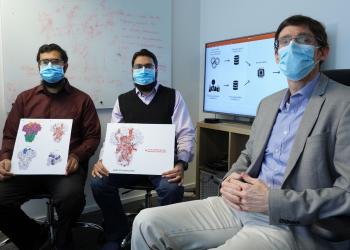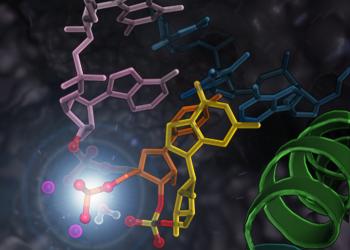News & Stories
2020

News
HKUST Researchers Uncover Chemo-resistance Mechanism in Glioma Patients
An international research team co-led by the Hong Kong University of Science and Technology (HKUST), Beijing Neurosurgical Institute, and the Spanish National Cancer Research Center (CNIO) has discovered a mechanism that explains why patients of gliomas – a common and aggressive type of brain tumors, would develop chemo-resistance, potentially allowing early identification of drug-resistant brain cancer patients.
At present, the main treatment for glioma is a combination of surgery, radiotherapy and the chemotherapy agent temozolomide (TMZ). This type of treatment can usually prolong patients’ overall survival time. However, most of them would suffer a relapse and some would become resistant to TMZ.

News
HKUST Scientists Shed Light on COVID-19 Vaccine Development
A team of scientists at the Hong Kong University of Science and Technology (HKUST) has recently identified a set of potential vaccine targets which could be helpful for the development of a vaccine against the SARS-CoV-2 coronavirus – the cause of a novel pneumonia (COVID-19) outbreak which has spread to over 30 countries to date, infecting over 80,000 people and claimed over 2,600 lives*.
2019

News
HKUST Scientists Discover How RNA Polymerase II Maintains Highly Accurate Gene Transcription with High-Performance Computing
Scientists from the Hong Kong University of Science and Technology (HKUST) have recently uncovered the mechanisms of how RNA polymerase II performs intrinsic cleavage reaction to proofread RNA transcriptions, shedding light on how mis-regulation of accurate transcription can lead to diseases including cancer and Alzheimer’s disease.
The message of life is encoded in our genomic DNA through transcription of messenger RNAs and translation of proteins to perform cellular functions. To ensure accurate transcription – a process that transcribes genomic DNA into messenger RNA by adding nucleotides one by one like letters in the alphabet, an enzyme called RNA polymerase II would synthesize and proofread messenger RNA to remove any mis-incorporated nucleotides that do not match with the DNA template.









